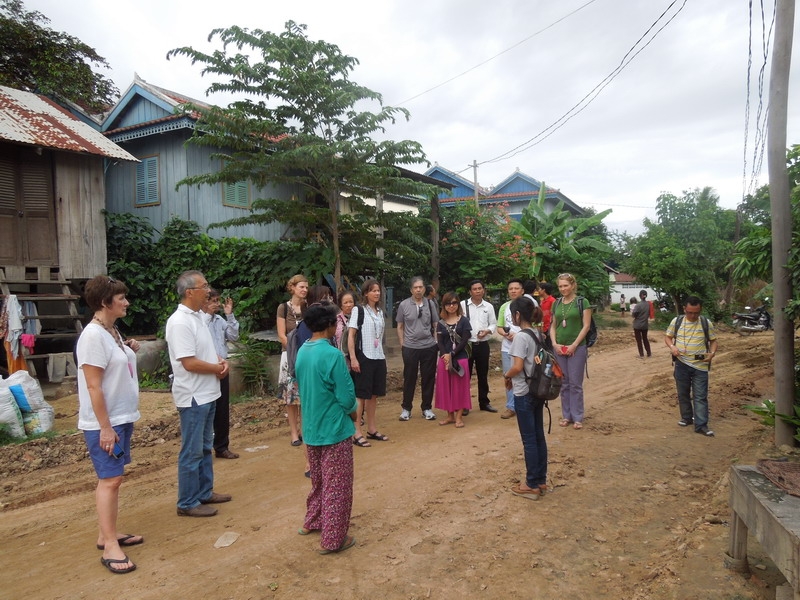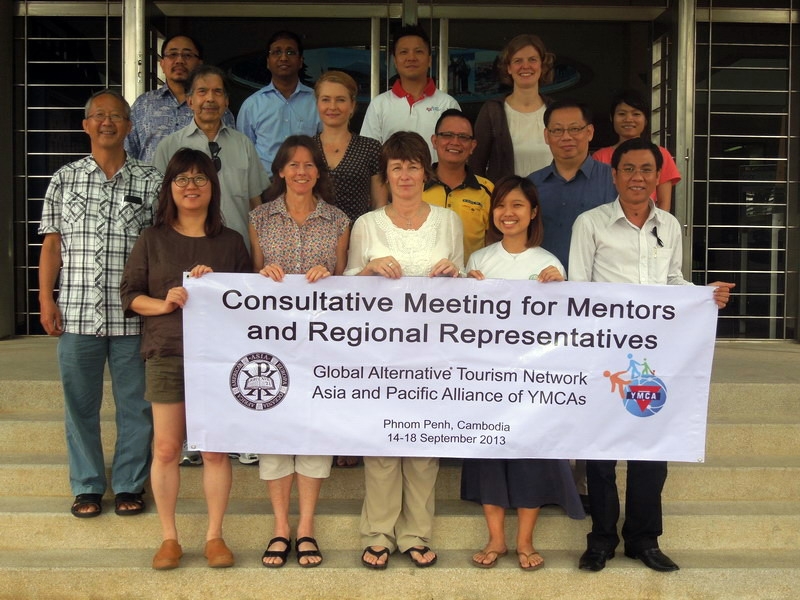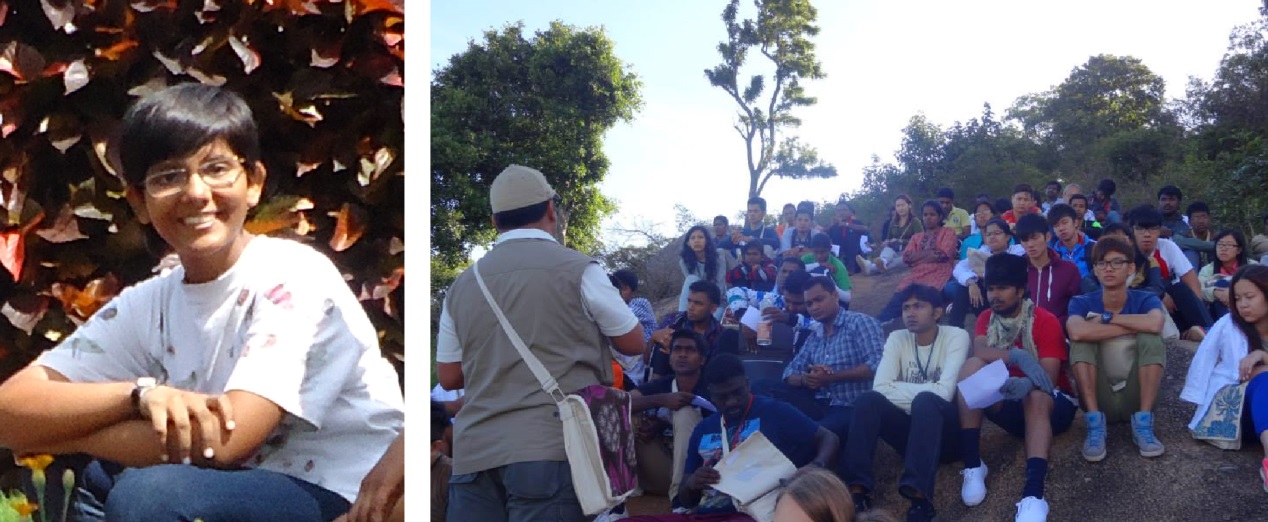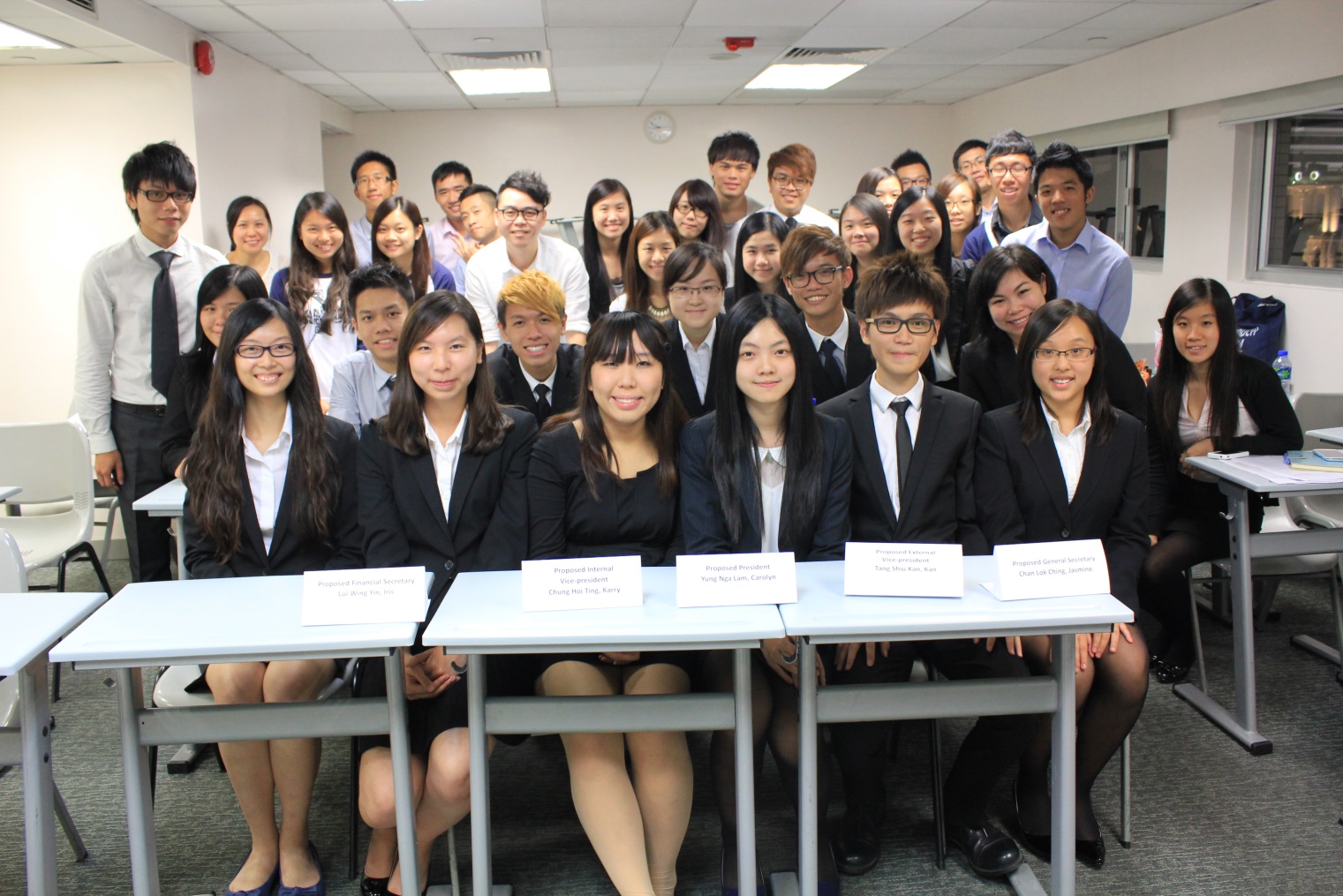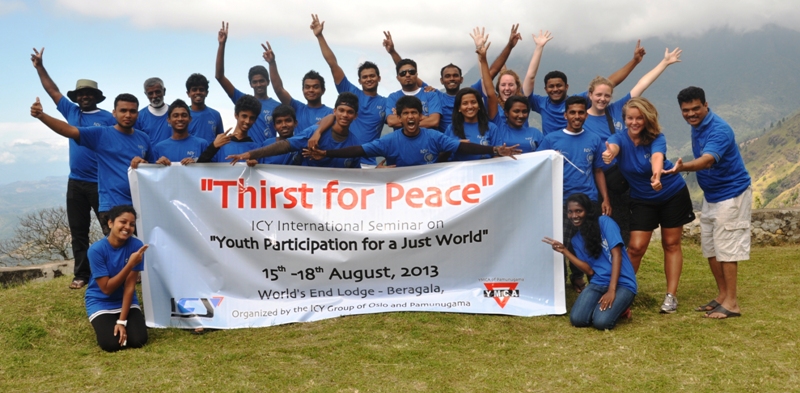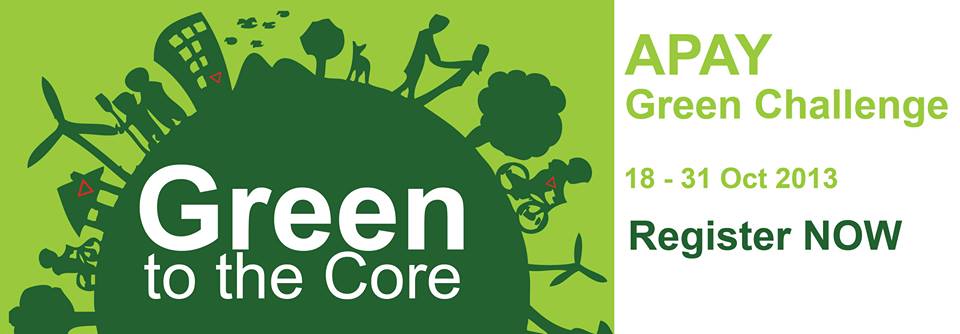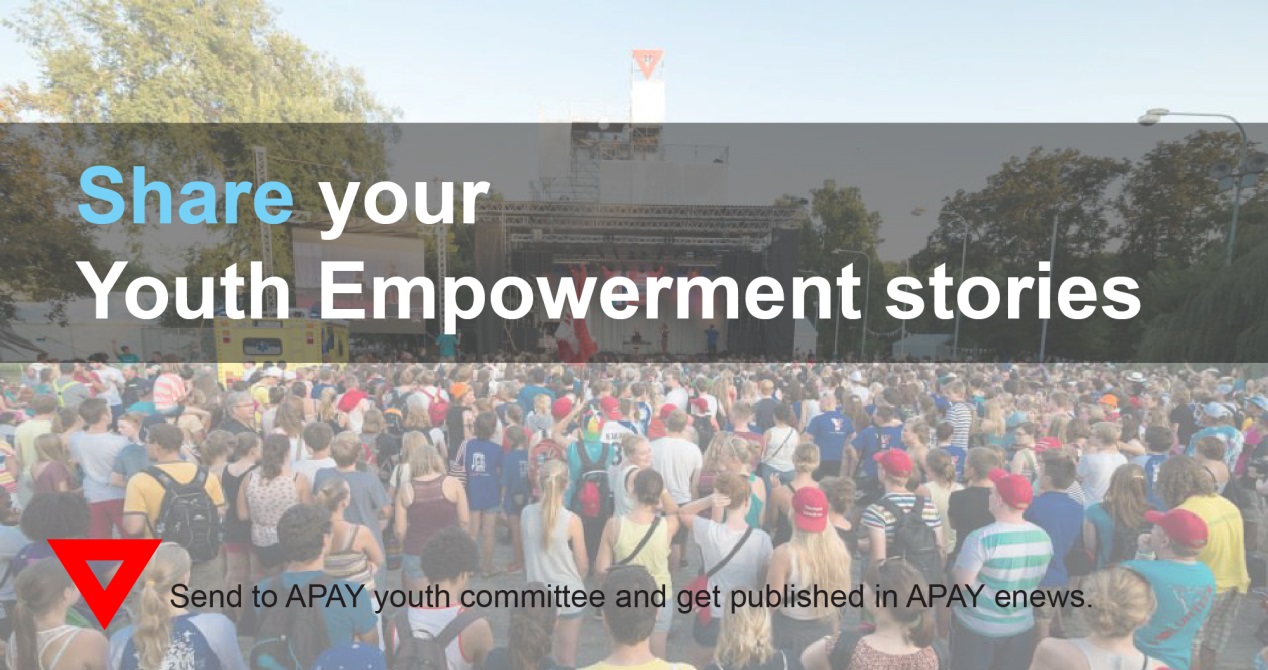APAY Regional Youth Conference, August 23-28, India
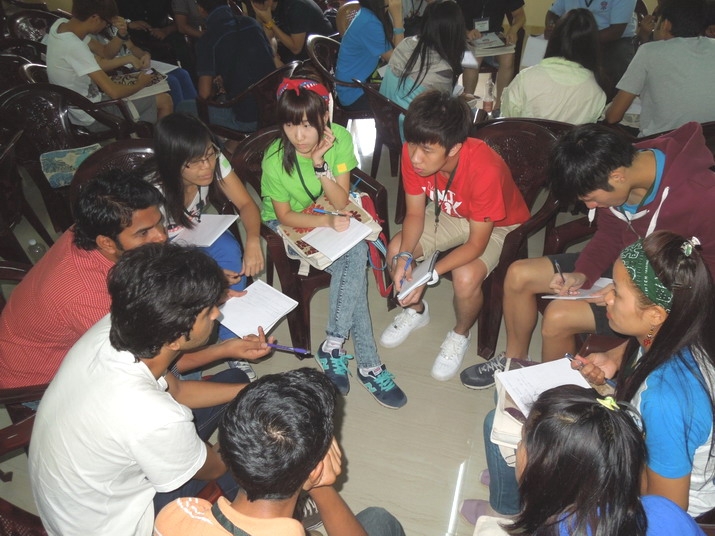 |
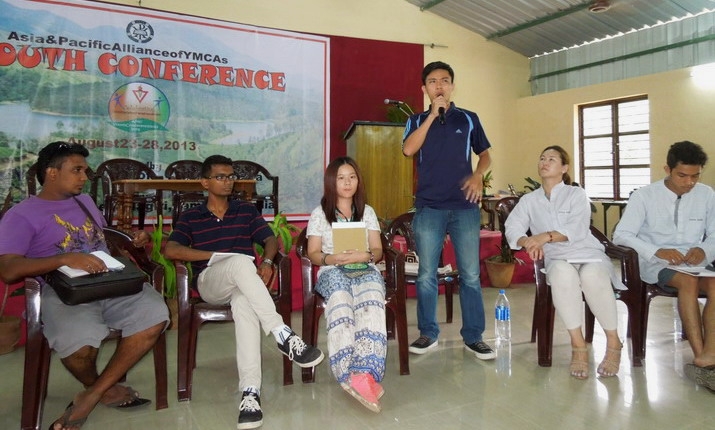 |
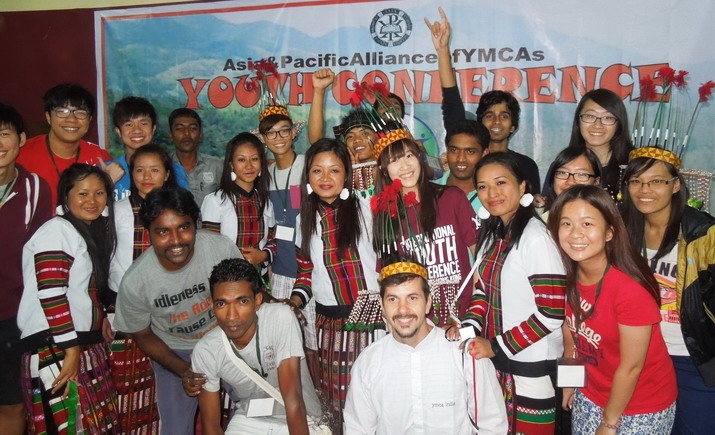
The Asia and Pacific Alliance of YMCAs Regional Youth Conference provides opportunities for young people to share and explore their capabilities, strengthen their solidarity and engage themselves in social realities as they seek to realize the impact and actions for the transformation of life and communities. The APAY Youth Conference was held on YMCA Yelagiri Camp, India on 23-28 August 2013. About 120 young people from Bangladesh, Hong Kong, Malaysia, Indonesia, Mongolia, Sri Lanka, Timor Leste, Vietnam, Germany, Brazil, and India gathered at the conference. The theme of the conference was “Celebrating Friendship, Cultural Pursuit and Social Action”. The APAY Regional Youth Conference was a platform for young people from Asia and Pacific Countries to celebrate and share the joy of friendship, cultural pursuit and social action. Theme chosen was very unique, friendship is very important because it is beginning of new life. Friendship is joining hands and walking along together, God the Almighty calls upon us to have similar attitude and vision for our actions towards the people around us in our society.
The participants focused on transforming life, transforming community, reflecting upon stronger friendship and for a better tomorrow and a better generation. Friendship, Culture Pursuit and Social Actions were the sub themes of the workshops held at the conference. Resource persons helped the participants to understand better on these issues. Selected participants’ responses from various countries on the sub themes also provided an open space for the participants to share their respective personal experiences during the workshops.
Movement Presentations were the formal and specific time for the participants to share about APAY orientation and current activities. Global Alternative Tourism Network, APAY Green Challenge, Climate Changing and YPLD program included in this section.
The Youth Conference was also about celebrate for youthfulness, the richness and diversity of our culture, tradition, spirituality. The Cultural Night was an opportunity for all participants to share and show their country’s culture through performances.
Morning devotions, trekking in the forests, tree planting & yoga meditation were the creative features of the conference while the Bon Fire and the Bollywood Dance Session rejuvenated the youths at the conference.
The exposure was a brief immersion or living with the marginalized families and the communities who are struggling for the quest of justice and peace. This part of the program provided a common experience and grounding to all participants.
YMCA has been serving the community for the last 169 years, empowerment of the young people is the priority in the YMCA. APAY Regional Youth Conference was designed to promote the aspect to empowerment the young people. It revived the spirit of the young people to get involved in the society in their own local movements.
The Youths from the National Movements shared their respective action plans of Youth Empowerment, Leadership Training, Strengthening Uni-Y & Campus-Y, they also committed to keep in close touch with the YMCA Youth of the region. The also committed to participate in the APAY Campaign of Green Challenge, which is scheduled to be held during 18-31 October 2013.
~ Roger Peiris, Youth Programme Officer, APAY
Asia-Pacific Student and Youth Gathering 2013
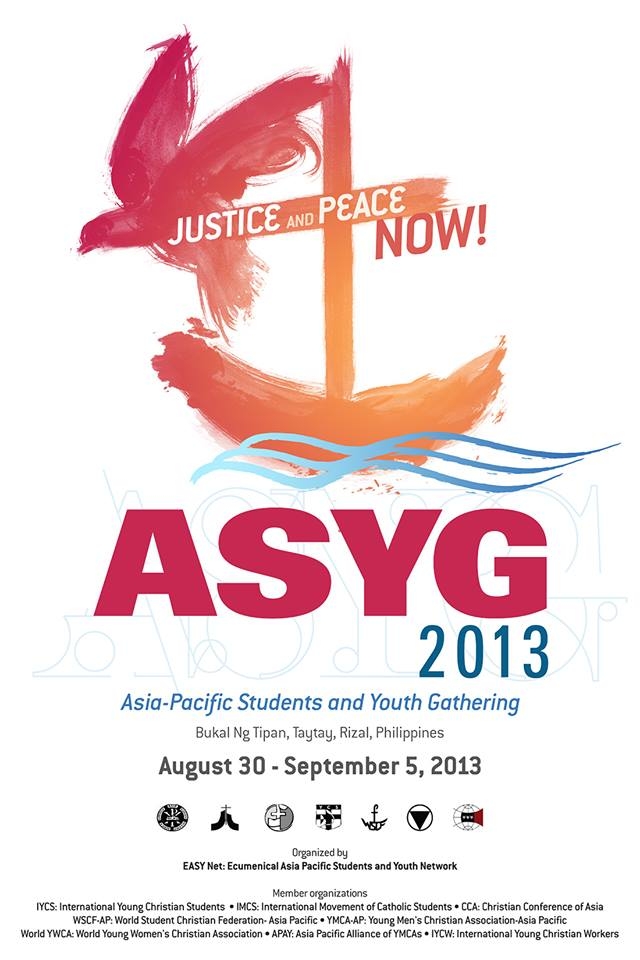 The Christian youths, students and young workers from Asia-Pacific Region, bonded in fellowship and spirit of solidarity met together at the Asia-Pacific and Youth Gathering (ASYG 2013) which was held from August 30 to September 5 at Bukal ng Tipan, Taytay, Rizal, Philippines. The Ecumenical Asia-Pacific Students and Youth Network (EASTNet) composed of seven member organizations: Christian Conference of Asia (CCA), Asia and Pacific Alliance of YMCAs (APAY), International Young Christian Workers (IYCW), International Movement of Catholic Students (IMCS), World Student Christian Federation Asia-Pacific (WSCF-AP), Young Women Christian Association (YWCA), International Young Catholic Student (IYCS), joined with Hong Kong Christian Council (HKCC), Hong Kong Christian Institute (HKCI) and Communion of Churches in Indonesia (CCI). The Christian youths, students and young workers from Asia-Pacific Region, bonded in fellowship and spirit of solidarity met together at the Asia-Pacific and Youth Gathering (ASYG 2013) which was held from August 30 to September 5 at Bukal ng Tipan, Taytay, Rizal, Philippines. The Ecumenical Asia-Pacific Students and Youth Network (EASTNet) composed of seven member organizations: Christian Conference of Asia (CCA), Asia and Pacific Alliance of YMCAs (APAY), International Young Christian Workers (IYCW), International Movement of Catholic Students (IMCS), World Student Christian Federation Asia-Pacific (WSCF-AP), Young Women Christian Association (YWCA), International Young Catholic Student (IYCS), joined with Hong Kong Christian Council (HKCC), Hong Kong Christian Institute (HKCI) and Communion of Churches in Indonesia (CCI).
Justice and Peace now is the call of the Asian young people now. During the 5th ASYG 2013, 150 delegates from 20 countries from Asia-Pacific convened in the midst of all life issues towards a strengthened, revived and revitalized ecumenical youth movement that seeks genuine justice and seeks to be catalysts of lasting peace.
The youths gathered in the spirit of God’s love that binds the whole creation together. Guided by our Christian calling to do and work for justice and peace, we prayed and worshiped together, shared the stories of our struggles and our unique diverse contexts and cultures that make up the richness of the Asia-Pacific in the different conversation and meaningful connections with the wider communities. Youth were able to open up their minds and hearts, and got inspired by these relationship and intersections of commonalities and particularities. The time that spent together enabled us to understand in solidarity with those who are struggling for life and dignity.
Youth heard and witnessed the plight of the people during exposure to the different communities in the Philippines. They are marginalized, abused and exploited: the urban poor’s daily life is a struggle due to worsening empowerment and hunger; the youth and students’ further is at stake due to commercialized, colonial and fascist education; and the indigenous people are displaced from their ancestral domains due to government policies.
These are common stories of injustice that we experience all across the region: inaccessibility to basic human rights such as education, health and housing especially to the poor and oppressed despite constitution’s guarantee; massive joblessness aggravated by labor export policies made migration and inevitable phenomenon; misappropriation and misuse of state funding; unfair neoliberal policies are unilaterally enforced that result to a backward economy; and militarization..
Aside from the economic issues, we also took cognizance of the social issues experienced by the countries of the Asia-Pacific: religious fundamentalism, militarism and nuclearization, gender inequality, ecological crisis and the discrimination against ethnic and religious minorities among others. Our Christian faith compels us to take the side of the “least of our brothers and sisters” as our concrete action towards the realization of the Kingdom of God.
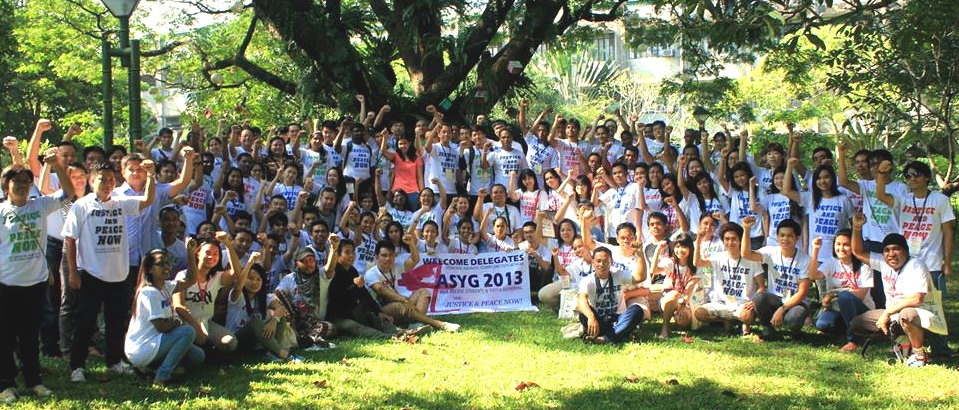
~ Roger Peiris, Youth Programme Officer, APAY
Resource Mobilization Year 2 Workshop, September 13-19, 2013, Sri Lanka YMCAs
The first of Year 2 Resource Mobilization Workshop series was held on 14-15 in Kallar Folk High School, Sri Lanka with 15 participants. At the start, the Volunteer Consultants Ron Coulombe and Jessica Rawn asked for an update from last year’s participants on the fund development initiatives in their respective local movements. Keeping in mind the different contexts where they come, the learning process included a brief overview on the APAY’s Resource Mobilization which included some snapshots of where the workshops were held, how the goals were set and how much have been achieved and collected as Year 1 Annual Fund Campaign concluded. The figures or amount they have submitted have been reviewed and re-validated through this workshop. After a brief process on what the participants want to accomplish in this workshop, a sharing on the First Annual Campaign was done. This included a review of the report they earlier submitted and presented with discussion of their learning, successes and challenges in the areas of cases, volunteer leadership, prospective donors, infrastructure (stewardship of donors, collecting and tracking goals and results, keeping donor files) and the plan. A presentation and discussion on stewardship, why this is important and how to do it was a good learning for the participants. Some of the challenges shared by the participants were as follows:
-
During the first asks, we have been denied but we persisted and succeeded.
-
We are now running the Pre-school program as our dream and we want to move to reach a goal of expansion.
-
We may need to find and identify some donors to help sustain the program and have more children avail of the services we can offer.
-
A donor would like to continue his support to increase the facilities of the pre-school program.
-
More farm inputs have been purchased and we are still working on our goal to enable us purchase the tractor which would still need to raise another Rs 140,000.
As the process continued, the participants eagerly shared some challenges and successes, looking forward to improving their initiatives further.
Another presentation on Lay Leadership (Campaign Volunteers) was conducted which emphasized the campaign structures (volunteer and staff roles, board of directors’ role, identifying and recruiting volunteers to expand the team). An exercise on identifying campaign volunteers and recruiting campaign volunteers was also introduced. The volunteer consultants, Ron and Jessica, did a role play on Volunteer Recruitment to show and share how to recruit campaign volunteers. The participants were later asked to practice and do it themselves. It was followed by another group activity on how their Y could attract new campaign volunteers, show them the program’s impact and identify the tools they think they would need. The final sessions on Year 2 were on defining the major donor/gift and prospecting donors outside the inner circle using campaign volunteers. This was followed by a demonstration on ‘when is the right time to ask’ gift demonstration role play and feedbacks from the observer.
Some advance resource mobilization concepts were introduced during the train the trainers’ session in the afternoon of day 2. It may have been challenging to cover the big topics since some of them were not in the year 1 workshop due to local Y’s staff leadership changes. This was followed by follow-up visit to Pandaterrupu, Jaffna on 16-17th September where the volunteers met with the local leaders and farmers who have been helped and supported through their case. Their Year 2 plan will be shared in a separate report.
The year 1 workshop held on 18-19th September held in Pamunugama worked so well as Jessica worked through direct questions/answers and filling the exercises for them as they learned how to develop their case. She guided them in doing the community needs analysis and developing a plan through a case. Practical sessions using visuals and diagram proved effective, particularly the concentric circle concept where participants learned and shared why they love the Y, placing themselves ‘before’ and ‘after’ on the diagram and understanding why they need to ask the closest to the heart first. They learned and practiced how to ask, set their goal and launch their first annual campaign. The set goal was Rs51,000 and they raised Rs24,000 during the launch at the workshop. What was so impressive was that the 8 participants were all young people of 20-35 years old. And they are the key leaders of this YMCA including the President and General Secretary who are both 28 years old.
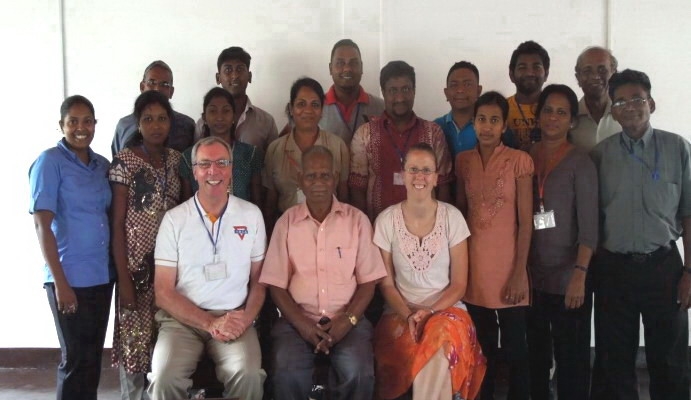 |
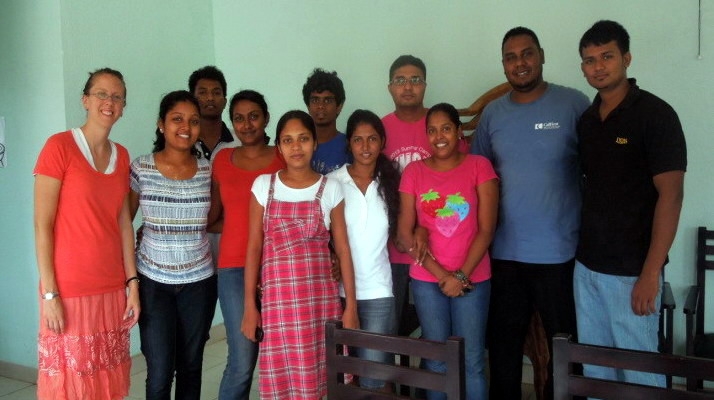 |
| ↑ Year 2 Workshop in Kallar, Sri Lanka with Negombo, Kalmonai and Pandateruppu YMCAs |
↑ Year 1 Workshop with Pamunugama YMCA |
~Eloisa Borreo, Executive Secretary, APAY
My Experience in Kachin State in Northern Myanmar
 Myanmar has been changing politically and economically very rapidly. Although this rapid change, strengthened the relationship with the international communities, still there are issues between the Myanmar Government and its various ethnic minorities who live in the border areas of Bangladesh, India, China, Thailand and Laos. There have been civil wars in the Kachin State in the northern part of the country where majority people belong to Kachin Tribe and also belong to the Christian faith. Due to the civil war between the Government Army and the Kachin Independence Army, there are over 100,000 Internally Displaced People (IDP) in many parts of Kachin State since 2011. Myanmar has been changing politically and economically very rapidly. Although this rapid change, strengthened the relationship with the international communities, still there are issues between the Myanmar Government and its various ethnic minorities who live in the border areas of Bangladesh, India, China, Thailand and Laos. There have been civil wars in the Kachin State in the northern part of the country where majority people belong to Kachin Tribe and also belong to the Christian faith. Due to the civil war between the Government Army and the Kachin Independence Army, there are over 100,000 Internally Displaced People (IDP) in many parts of Kachin State since 2011.
Issues of conflicts exists between the Kachin State and the Myanmar Government. According to Mr. Gun Shawing, General Secretary of the Myitkyina YMCA, the issues are as follows,
-
A big scale Hydro-Electric Dam will be constructed in the rivers near China boarder. The construction plan was made between China and the Myanmar Government. Besides, the Kachin State has been ignored in developing the boarder areas where a lot of natural resources exist such as timber, gold and jade stone.
-
From 2011, the Government Army has attacked the KIA near the China border and 66 churches were torched and making people flee to the border regions of near Myitkyina. The number of IDPs has been over 100,000 and the YMCA has been helping with children’s education program in three IDP camps near Myitkyina.
-
Poppy cultivation is prominent in the area and many young people throughout the entire Kachin State have become victims of drugs. Drug dealers have been selling heroine to young people of Kachin tribes mainly. According to the recent information, 60% of male and 10% of female in the universities of Myitkyina are regular drug users. This trend has been spreading gradually to the other states but the main target seems to be Kachin youth.
-
The police are supposed to control the drug dealers, but no such activities are visible. It has been therefore quite easy for the young people to have access to drugs. The local people think that the Central Government has been deliberately doing this to destroy the anti government movement in Kachin by spreading drugs amongst the Kachin youth.
-
Church groups have been conducting 40 day-long drug rehabilitation programs continuously. When we visited one of the rehabilitation centers, there were 57 males in the rehab center under their supervision. However, there is no fund from the Government for this and only a small efforts have been done by church groups only.
I was shocked with so many drug users amongst the Kachin youth and felt that YMCA should be dealing with this issue. According to the young Kachin people the reasons for so many drug users were :
-
80% of youth are jobless due to the civil war and see no hope for the future.
-
Drugs are easily available in many places and at a very low cost.
-
The absence of Government initiatives to control drug abuse.
-
Nexus between the Government Officials, police and the drug dealers are common.
-
Parents working in mining of gold and jade and leaving their children at home.
Proposed Action Plan From APAY
The drug issue in the Kachin State should be further studied and we need to determine what we could do as a local YMCA in the state, the National Council and International Partners. APAY would like to propose for an intensive fact finding study tour to the Kachin State and make a proposal of concrete actions and strategies to this serious drug issue.
-
We could introduce some good practices for drug awareness and rehabilitation programs from YMCAs and also from the other NGOs in the world.
-
Propose an international team to visit Kachin State to investigate the drug issue there. They visit there for a week or so to make recommendations for further actions by the YMCAs locally, nationally and internationally.
-
The drug issue among youth is not only happening in Kachin but also becoming serious in many other areas in both developed and developing countries. We need to make some actions in Kachin and if we can do this, it would become a good example in the future.
~ Kohei Yamada, General Secretary, APAY
YMCA Rural Community Development Program in Timor Leste
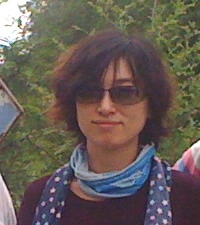 |
Richard Kiang, APAY Consultant for Movement Strengthening visited East Timor recently. During his visit he had an interview with Ms. Dong-Hwa Yang, Executive Director, YMCA Peace Coffee Project in East Timor. This project is supported by the National Council of YMCAs of Korea. The excerpts of the interview are transcribed below.
← Ms. Dong-Hwa Yang
|
When did the Peace Coffee Project start, how did you select the location?
The Peace Coffee Project was launched by Mr. Hideki Ishibashi (Japan YMCA staff who worked in Timo Leste) time, in 2006. The Council of YMCAs of Korea had sought his assistance to initiate Fair Trade with East Timor YMCA engaging the community in remote area of Same, Rotuto (5 villages located in this area). Same is located in the central region of the country in the high mountainous area. The weather is cool and suitable to grow good quality coffee there.
How did the project begin?
When we started the project in 2006 we did not knew too much about the commercial aspect of coffee. We were committed to strengthen the capacity and autonomy of the local communities there as a part of our development initiatives and then we found out the fact that there were plenty coffee trees and the coffee was sold to multinational companies and with unstable prices. We thought if we could intervene, the local people could get a fair price for their red-cherries.
We appointed a project manager from the locality and entrusted him with the purchase of coffee from the villagers. That year we were unsuccessful. We then, adopted a new approach. We organized a coffee processing workshop for the young people there. We trained them and taught them about the quality control aspect of the product. With increased participation from the community we then started fair trading with the coffee farmers. We organized local community including the village chief who was counselor for the project. The idea was to create partnership between YMCA and villagers through Coffee Project. They produced good quality coffee and we bought them at a fair price.
What was the villager’s reaction in the beginning?
Our approach was different from other NGOs. We told them, money was not the only important factor but it was the quality of the coffee. Quality coffee could make difference through the project and thus created a win win situation for all the parties involved. It meant quality control was very important rather than income alone. Farmers should work hard for good income for themselves and also they should develop their community by themselves. Most farmers sold their coffee but they did not knew who drank the coffee. Through Peace Coffee Project the YMCA made link between who produced the coffee and who drank the coffee.
How this changed the people?
First, they were not serious in the project, just observed by daily checking, maintenance, and etc. YMCA organized young people and leading groups to supervise the corporative business. Three parties were involved in decision making for processing of the project. The location of Rotutu is very remote on top of the mountain. It was hard to find young people in the beginning when the project began. However, they now returned back to their villages because they are aware that they can earn money from the Coffee project.
What is farmer cooperative?
Earlier they were exploited by the multinational companies while selling coffee in Timor Leste. The quality was not good and they didn’t get good price for the coffee. The YMCA formed the village cooperatives. In the cooperative, the farmers joined together for coffee business. By doing so, they got power to make decision even in fixing the price of the coffee and eventually facing the MNCs. Corporative is the process for trust building. People in collective form, learn from each other how to work together and build mutual trust.
How did the coffee project benefit the Community?
After selling of their coffee, they deposit 10 cent per kilogram of coffee sold in the Cooperative Fund. Five villages has five groups. They come together as one cooperative. Community leaders, YMCA sit together with the villagers to decide how to use the fund. In 2011, each group collection was US$800, through these policy, they supported to buy furniture for the community school. In 2012 the each group saved upto $1,500. They did not spend the fund yet. They plan to utilize the fund of 2012 and 2013 and for vocational training center for young people.
How did the farmers living situation change?
Before the villagers were not able to eat rice, they only ate corn and beans. Now all villagers can enjoy rice as their daily food. They can repair their houses. They also own hand phones. YMCA provided a clinic and trained women to run the clinic. YMCA started building a junior high school and provided installations for solar energy for the community. Before they only had one primary school for five villages. Now the five villages together provided building materials from local community to build the junior high school. It was really amazing that they can do by themselves.
How do they see the YMCA now and the time you started working the villagers?
For the very first time, they thought YMCA was just like missionary organization or a company. But now they understand that YMCA is different from other NGOs. Now they say that in the YMCA the people are most important, they regard themselves as people in YMCA whom play an important role in their community.
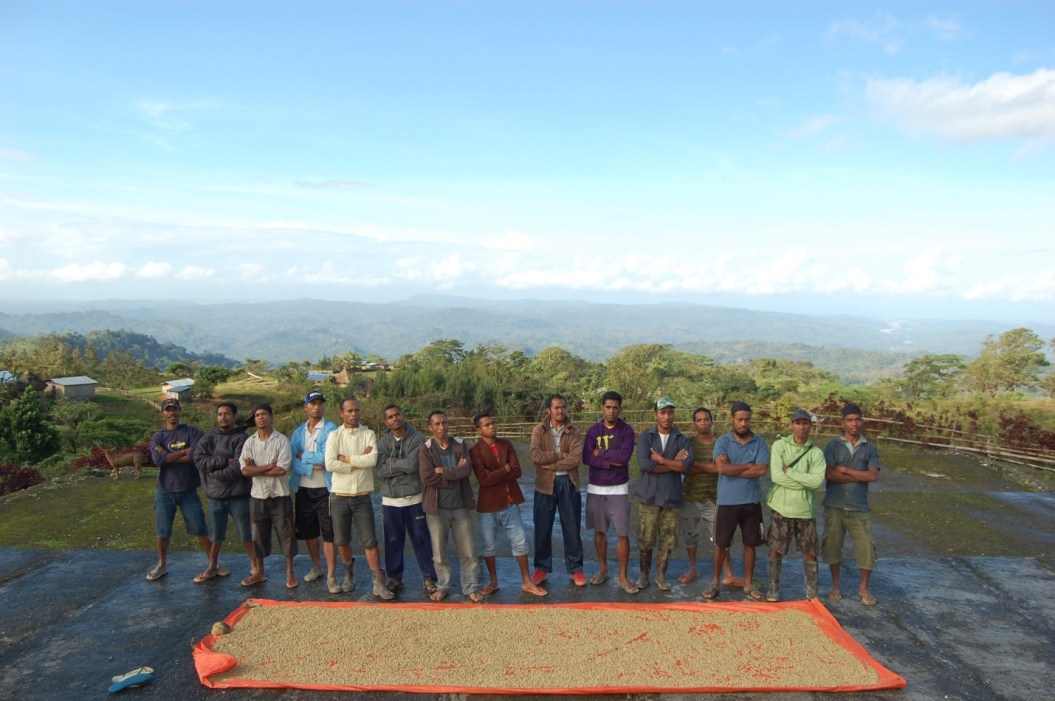
GATN Consultative Meeting for Mentors and Regional Representatives
The Consultative Meeting for Mentors and Regional Representatives of the Global Alternative Tourism Network (GATN) was held in Phnom Penh from 14-18 September 2013. The meeting brought together members of the GATN Task Force to review our programme, explore and strategise how best to develop this programme further in the coming years. We were also fortunate to have two members from the Tourism Watch, Bread for the World, Germany, Ms. Antje Monshausen and Ms. Annegret Zimmermann, participate in this meeting.
Mr. Yamada Kohei, General Secretary of the Asia and Pacific Alliance of YMCAs, welcomed participants to the meeting and shared his hopes and expectations that the Alternative Tourism programme will contribute to leadership formation and development of global citizenship of young people. In his welcome to the participants, Mr. Bunthok Deth, General Secretary of the Cambodia YMCA, informed that the Cambodia YMCA has also been working hard to develop an alternative tourism site and hoped that everyone would have a good time visiting the site on the following day.
Mr. Caesar D’Mello, advisor to the GATN began the meeting with morning devotion and an input on Current Trends in Alternative Tourism and Challenges for the GATN. This was followed by Ms. Monshausen’s sharing on “Human Rights and Tourism” and Ms. Zimmermann’s sharing on “Tourism and Climate Change”.
The members of the GATN Task Force also enriched the discussions on alternative tourism with their own experiences and expertise. Some shared with the group case studies of their experiences in developing and managing alternative tourism sites. Another group shared case studies of their experiences in sending groups of young people for study tours and service learning programmes. From the sharing of these case studies we derived much input for further improvement of the programme.
One of the highlights of this meeting was the GATN Round Table. Representatives from YMCAs that regularly send youth groups for study tours and service learning programmes were invited to participate in this Round Table. The objectives of the Round Table are to share with these sending YMCAs some of the special and unique sites being developed in our alternative tourism network and receive feedbacks from them on how these sites could be developed further to cater or meet the needs of these sending YMCAs.
Another highlight of this meeting was the visit to alternative tourism site being developed by the Cambodia YMCA. We visited a school about 30 minutes outside the city of Phnom Penh. Several groups of international visitors have participated in various projects in this school such as painting the class rooms and having English conversation classes with the students. We also visited the village and houses where international visitors of the alternative tourism had their homestay. We ended the visit with a community dinner and some cultural activities with the villagers.
In order to further promote and develop the Alternative Tourism programme the meeting concluded that more training workshops should be conducted at national levels. It was also proposed that the APAY initiate some pilot study tours as a means to showcase alternative tourism and also to help the local YMCAs to jumpstart their alternative tourism programme.
~ Chan Beng Seng, Program Officer for GATN, APAY
Tentative Timetable of Executive Committee & Related Meeting, March 3-9, 2014
| Date |
8:00 a.m. |
9:00 a.m. |
11:00 a.m. |
Lunch |
2:00 p.m. |
4:00 p.m. |
6:30 p.m. |
| Mar 3, Mon |
-- |
-- |
-- |
-- |
Board Meeting |
Board Meeting |
Dinner with NGS |
| Mar 4, Tue |
-- |
NGS |
NGS |
NGS |
NGS |
NGS |
Dinner / Board Meeting |
| Mar 5, Wed |
-- |
Training session for all ECM Members |
PSG Meeting |
ECM Business Meeting Start |
Dinner hosted by HK YMCA |
| Mar 6, Thur |
Women’s Day Devotion |
Committee Meeting |
Committee Meeting |
PSG Meeting |
Committee Meeting |
Committee Meeting |
Y’s Men & YMCA join Meeting |
| Mar 7, Fri |
Y’s Men Breakfast |
MS session |
-- |
Plenary |
Closing |
Dinner hosted by Chinese YMCA |
| Mar 8, Sat |
-- |
19th GA & YA Planning Committee Meeting (join meeting) |
-- |
19th GA & YA Planning Committee Meeting (seperate meeting) |
Dinner / Board Meeting |
| Mar 9, Sun |
-- |
19th GA & YA Planning Committee Meeting (join meeting) |
-- |
Leave |
-- |
-- |
|
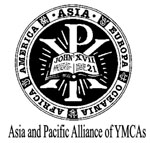





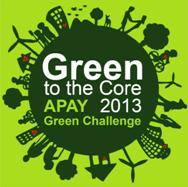 “GREEN to the CORE”, is a coordinated activity organized during 18 -31 October, 2013 with an aim of mobilizing young people and community to make them aware about their responsibility towards the society. One of the key areas of APAY is environmental concerns. As global citizens we need to take care of the nature around us and preserve it for the generation to come.
“GREEN to the CORE”, is a coordinated activity organized during 18 -31 October, 2013 with an aim of mobilizing young people and community to make them aware about their responsibility towards the society. One of the key areas of APAY is environmental concerns. As global citizens we need to take care of the nature around us and preserve it for the generation to come.


 The Christian youths, students and young workers from Asia-Pacific Region, bonded in fellowship and spirit of solidarity met together at the Asia-Pacific and Youth Gathering (ASYG 2013) which was held from August 30 to September 5 at Bukal ng Tipan, Taytay, Rizal, Philippines. The Ecumenical Asia-Pacific Students and Youth Network (EASTNet) composed of seven member organizations: Christian Conference of Asia (CCA), Asia and Pacific Alliance of YMCAs (APAY), International Young Christian Workers (IYCW), International Movement of Catholic Students (IMCS), World Student Christian Federation Asia-Pacific (WSCF-AP), Young Women Christian Association (YWCA), International Young Catholic Student (IYCS), joined with Hong Kong Christian Council (HKCC), Hong Kong Christian Institute (HKCI) and Communion of Churches in Indonesia (CCI).
The Christian youths, students and young workers from Asia-Pacific Region, bonded in fellowship and spirit of solidarity met together at the Asia-Pacific and Youth Gathering (ASYG 2013) which was held from August 30 to September 5 at Bukal ng Tipan, Taytay, Rizal, Philippines. The Ecumenical Asia-Pacific Students and Youth Network (EASTNet) composed of seven member organizations: Christian Conference of Asia (CCA), Asia and Pacific Alliance of YMCAs (APAY), International Young Christian Workers (IYCW), International Movement of Catholic Students (IMCS), World Student Christian Federation Asia-Pacific (WSCF-AP), Young Women Christian Association (YWCA), International Young Catholic Student (IYCS), joined with Hong Kong Christian Council (HKCC), Hong Kong Christian Institute (HKCI) and Communion of Churches in Indonesia (CCI).


 Myanmar has been changing politically and economically very rapidly. Although this rapid change, strengthened the relationship with the international communities, still there are issues between the Myanmar Government and its various ethnic minorities who live in the border areas of Bangladesh, India, China, Thailand and Laos. There have been civil wars in the Kachin State in the northern part of the country where majority people belong to Kachin Tribe and also belong to the Christian faith. Due to the civil war between the Government Army and the Kachin Independence Army, there are over 100,000 Internally Displaced People (IDP) in many parts of Kachin State since 2011.
Myanmar has been changing politically and economically very rapidly. Although this rapid change, strengthened the relationship with the international communities, still there are issues between the Myanmar Government and its various ethnic minorities who live in the border areas of Bangladesh, India, China, Thailand and Laos. There have been civil wars in the Kachin State in the northern part of the country where majority people belong to Kachin Tribe and also belong to the Christian faith. Due to the civil war between the Government Army and the Kachin Independence Army, there are over 100,000 Internally Displaced People (IDP) in many parts of Kachin State since 2011.

